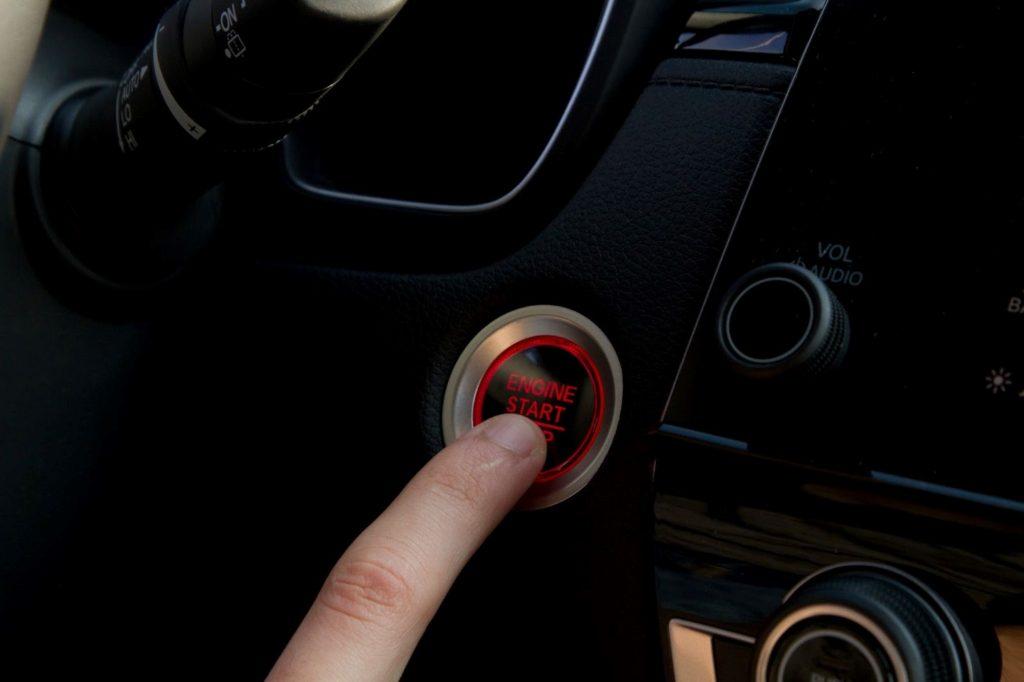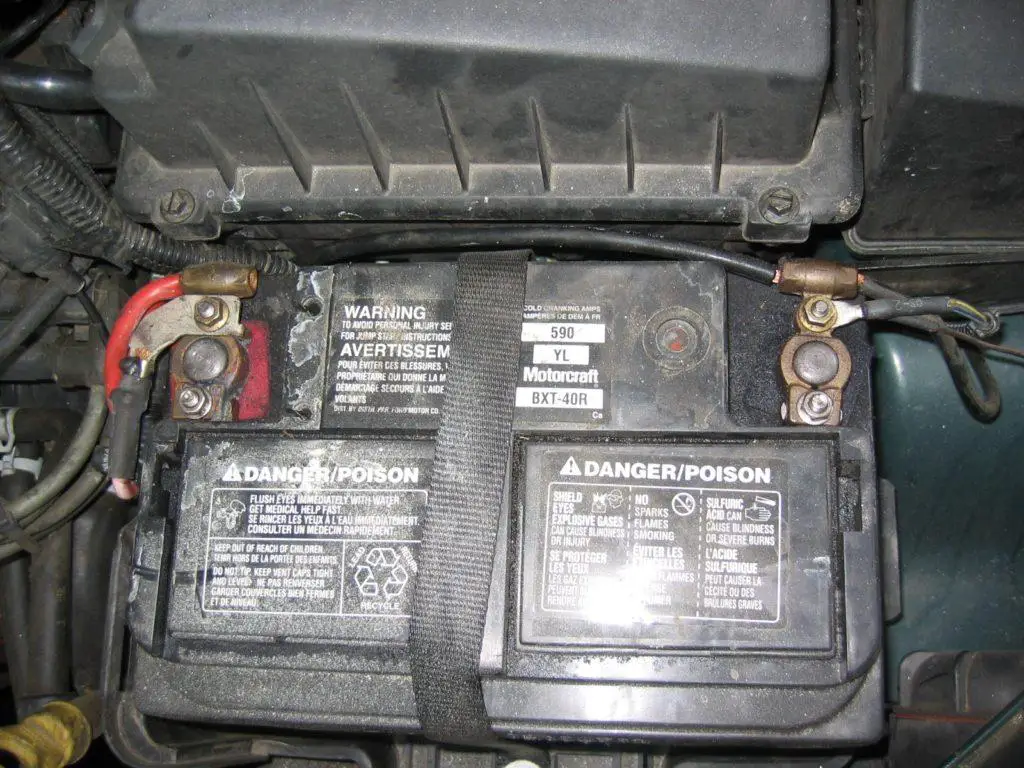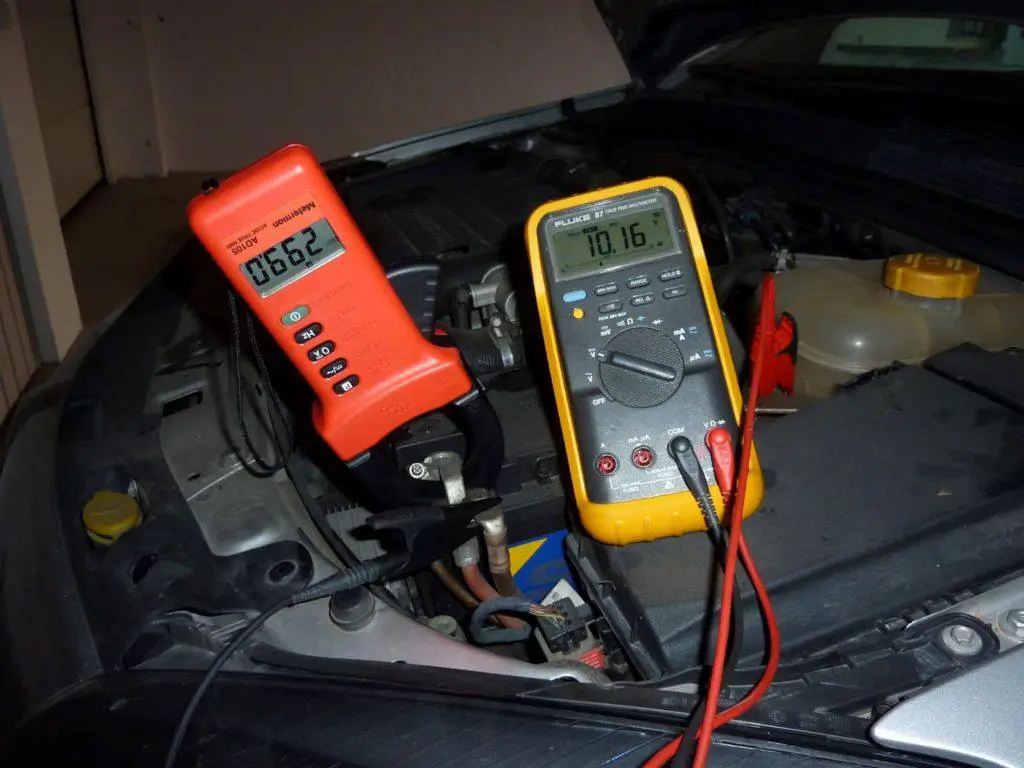Finding out that your car’s battery is dead when you’re sitting behind the wheel is a frustrating experience. To avoid this frustration, you must replace your car battery before you actually need to.
According to AAA (American Association of Automobiles), car batteries deteriorate within three to five years. After that, you’ll need to buy a new battery to replace the old one to keep your vehicle working.
So, if your car battery is older than that, it might be a good time when to replace car battery based on some early warning signs. Let’s discuss this topic in detail to help you understand the correct time for car battery replacement.
Jump To
- 1 Common Signs Indicating That You Need to Replace Car Battery
- 2 What Factors Affect the Car’s Battery Life
- 2.1 Failed Charging System
- 2.2 Temperature
- 2.3 Corrosion
- 2.4 Leaving the Accessories on While Parking
- 2.5 Bad Habits
- 2.6 Tips to Maintain Your Car Battery
- 2.7 Drive Your Vehicle Regularly
- 2.8 Turn off the Security System When Parked in the Garage
- 2.9 Check Battery Fluids Regularly
- 2.10 Perform Car Battery Test Periodically
- 2.11 Install a Block Heater
- 3 FAQs – When to Replace Car Battery
- 3.1 How Often Should You Replace Your Car Battery?
- 3.2 How Much Does a Battery Cost?
- 3.3 Can You Install a Car Battery Yourself?
- 3.4 What are the signs of a bad car battery?
- 3.5 How long does a car battery last?
- 3.6 Can I replace my car battery myself?
- 3.7 What is the best type of car battery to buy?
- 3.8 Final Words
Common Signs Indicating That You Need to Replace Car Battery
The following are some telltale signs to help you determine the right time to replace your vehicle’s battery.
Slow Engine Start
If your car engine is taking more time than usual to start, consider it a red flag. It’s one of the most common indicators, showing that you have a weak battery. It usually happens when the components inside the battery become less effective due to normal wear and tear or a bad charging system.

Electrical Issues
You would already know that the battery provides power to all the electronics that your car has. It includes everything from your dashboard computer to head and tail lights.
If you have a bad battery, you’ll experience electrical issues, such as dim lights, warning messages, and infotainment system failure,
Check Engine Light
Modern vehicles come with an onboard computer that turns on the check engine light on the dashboard if there’s something wrong with the vehicle.
This light also turns on when your battery is weak. If you see this light, get the battery checked as soon as possible and replace it with a new one if needed.
Corroded Battery Terminals
An ashy, white substance on your battery terminals means that you have a corrosion issue. This problem can lead to battery voltage issues, and in the worst cases, your car will fail to start.
Removing battery acid corrosion from terminals should resolve this problem. However, you might also need to replace the battery if it’s not possible to remove the corrosion sufficiently.
Odd Smell
An internal short circuit or damage to the battery can lead the car battery to leak gas. If you smell a foul odor after opening the hood, you have a bad vehicle battery, which is probably leaking. You’ll need to get it checked by a professional mechanic to figure out if it needs replacement.
Swollen Battery Case
A swollen or deformed battery case is one of the biggest indicators of a faulty battery. In such a case, you’ll need to get your car battery replaced as soon as possible. It usually happens because of exposure to extremely cold or hot temperatures.
If you see that your car battery is swollen, make sure that you don’t drive your car until the new battery is installed. That’s because a swollen battery can be extremely dangerous and if car batteries explode, causing serious damage to your vehicle.
Old Battery
As mentioned earlier, every automotive battery deteriorates with time. If your car battery is older than three to five years, you should replace it with a new one, even if it’s working fine. It’ll help you avoid the hassle of ending up with a dead battery.

What Factors Affect the Car’s Battery Life
Here’s a list of the most common factors that can affect the life of car batteries and cause them to die.
Failed Charging System
If your vehicle has a failed charging system, your battery will die. It usually happens when the alternator, a component that turns mechanical energy into an electric supply, fails to work properly. As a result, your battery doesn’t get charged and dies.
Temperature
Generally, most car batteries perform better in cold temperatures than in tropical climates. That’s because higher temperatures make car batteries become more chemically active and work harder.
In addition, the liquid (acid) present inside the automotive battery can evaporate under extreme temperatures. The lower fluid level inside the battery can damage its internal structure. Not only does it affect the car battery’s health but it can also cause the battery to die if you keep using it like that.
Corrosion
The corrosion on the battery terminal reduces the current flow and it can affect the car battery’s health. In addition, grease and dirt build-ups can also drain the power of your battery faster.
Leaving the Accessories on While Parking
One thing that many new drivers forget is to turn off the electric accessories, such as radio, aircon, and lights while parking the car. It’s bad for your car’s battery because it’ll drain the power while your battery isn’t being charged.
If you keep following this bad practice, you’ll end up with a dead battery sooner or later. So, make sure that you turn off all the electric accessories before leaving your car.
Bad Habits
The following are some common bad habits that many drivers have, which can affect the car battery’s lifespan.
- Extremely hot engine bay conditions, usually due to driving the car at high RPMs for a long time, can affect the battery’s health.
- Excessive use of all the electric accessories simultaneously.
- Frequent on and off engine cycles.
- Trying to turn on the engine repeatedly when it’s failing to start because of an internal issue.
- Not maintaining the car’s battery properly.
Tips to Maintain Your Car Battery
Just like any other component of your car, you’ll need to keep the battery maintained as well. Here are a few tips that you can use to maintain your vehicle’s battery life properly.
Drive Your Vehicle Regularly
Keep in mind that there are many components in your car. Such as security alarms, computers, and clocks, that keep using battery power. If you don’t drive your car for a long time, these components will drain the battery.
So, if you don’t need to use your vehicle frequently, make sure that you drive it for at least 30 minutes every week. It’ll keep your car battery charged.
Turn off the Security System When Parked in the Garage
If you have a garage where you can park your car safely, you can consider turning off the security system. Otherwise, it’ll keep using the power from the battery, draining it out quickly.
Check Battery Fluids Regularly
When you take your vehicle to a workshop for regular maintenance, ask the mechanic to check and top up the fluid level in the battery. As mentioned earlier, driving your vehicle with lower fluid levels in the battery can lead it to die.
Perform Car Battery Test Periodically
You can also ask the mechanic to perform the car battery test to check its voltage and capacity. If you’re a DIY enthusiast, you can also perform this test yourself at home. You’ll need to use a multimeter to measure the battery voltage and capacity (measured in cold cranking amps or CCA).

Install a Block Heater
If you live in an area with extremely low temperatures, you would want to install a block heater in your vehicle. It’ll allow you to reduce the stress on your car’s battery and help it to turn on the engine easily. A block heater is an affordable product that can help you maximize the lifespan of your battery.
FAQs – When to Replace Car Battery
How Often Should You Replace Your Car Battery?
Ideally, you should replace car batteries when they are three to five years old. However, depending on the climate and your driving habits, you might need to replace it earlier than that. If you see any of the signs discussed in this guide, take your vehicle to a professional mechanic to determine if a lead-acid car battery replacement or AGM batteries are needed for your car engine.
How Much Does a Battery Cost?
The price of a new battery depends on multiple factors. For example, maintenance-free batteries are more expensive than standard ones. Generally, you can expect to pay around $80 to $300 to get your car battery replaced.
Can You Install a Car Battery Yourself?
Yes, you can install an automotive battery yourself. You’ll need to turn off the vehicle, remove the terminals using a socket wrench, lift the old battery out, place the new one, and connect the terminals. Make sure that you wear protective gear, and remove the negative terminal first (connect the positive one first).
What are the signs of a bad car battery?
Answer: There are a few signs that your car battery may be going bad and it may be time to have a battery replaced, including:
- Slow cranking engine
- Dim headlights
- Dashboard battery light on
- Difficulty starting the car, especially in cold weather
- Increased need for jump starts
- Corroded battery terminals
- Swollen battery case
- Leaking battery fluid
If you notice any of these signs, it’s best to have your battery tested by a mechanic or auto parts store.
How long does a car battery last?
Answer: The lifespan of a car battery varies depending on a number of factors, including the climate, driving habits, and the type of battery. In general, typically car batteries last around three to five years. However, in extreme climates or if you have a lot of short trips, you may have a shorter battery life and may need to be replaced sooner.
Can I replace my car battery myself?
Answer: Yes, it is possible to replace your car battery yourself. However, it is important to follow the safety instructions carefully and to take precautions to avoid damaging the electrical system. If you are not comfortable replacing the battery yourself, you can take it to a mechanic or auto parts store to have it done for you.
What is the best type of car battery to buy?
Answer: The best type of replacement battery to buy depends on your climate and driving habits. If you live in a cold climate, you will need a battery that is designed to withstand cold temperatures. If you have a lot of short trips, you may want to consider a deep-cycle battery.
It is also important to choose a battery that has the correct amperage and reserve capacity for your vehicle. You can find this information in your owner’s manual.
Final Words
Finding the correct time to replace the car battery can be challenging but it doesn’t have to be. You just need to look for the common signs, discussed in this guide, to determine whether or not your battery needs to be replaced.
Make sure that you also follow the maintenance tips that we have discussed to maximize the lifespan of your replacement battery.

2 thoughts on “When to Replace Car Battery – 5 Tips to Maintain Your Battery”
Comments are closed.